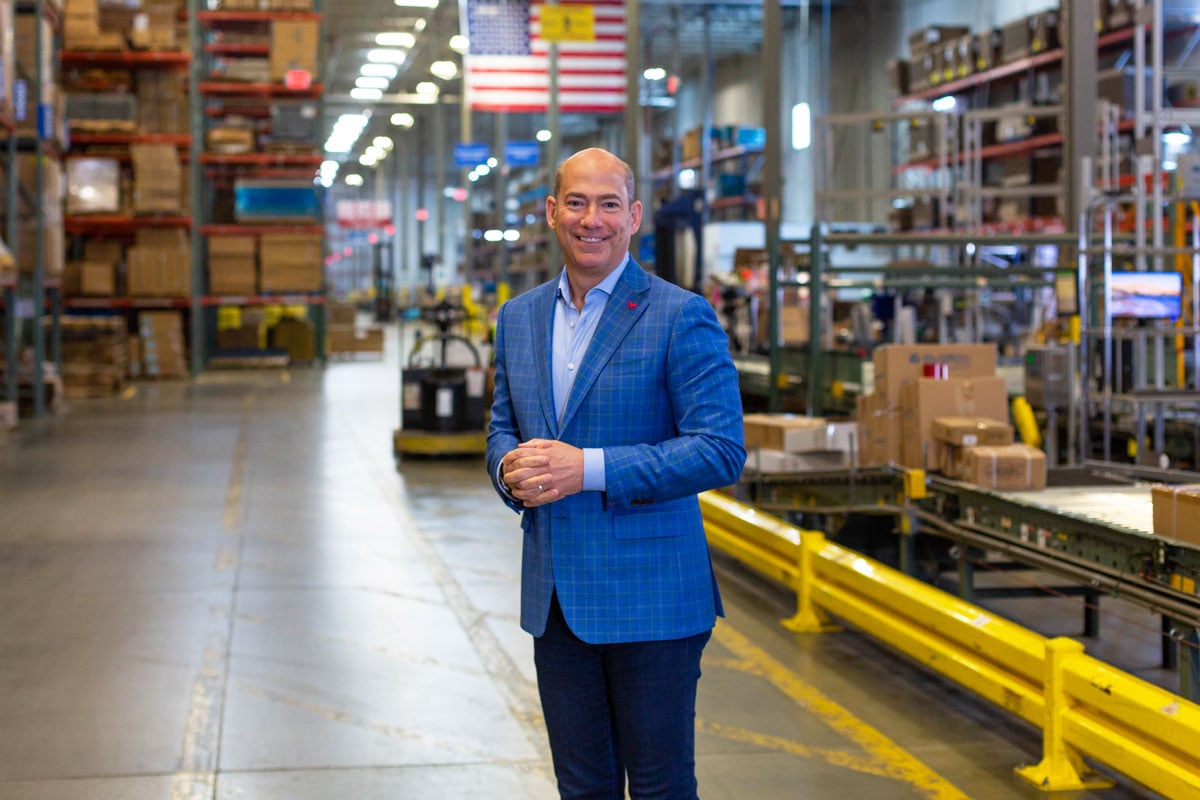An Ace Up His Sleeve: Barry Litwin
When Barry Litwin took on the CEO role, he could see that great possibilities lay ahead for the Global Industrial brand. Now, with a clear vision and strategy firmly in place, that potential is being realized.
When Barry Litwin took on the CEO role, he could see that great possibilities lay ahead for the Global Industrial brand. Now, with a clear vision and strategy firmly in place, that potential is being realized.

When Barry Litwin joined Global Industrial Company (formerly Systemax) as CEO in 2019, the company was already undergoing a major metamorphosis. The company had divested its IT businesses in order to focus solely on its maintenance, repair and operations product distribution business Global Industrial. Having already spearheaded the digital commerce strategies of a number of business-to-business and business-to-consumer brands, Barry was seen as the right person to steer the company at this critical inflexion point.
"My appointment set off the course for really redeveloping a vision for the company and the strategy, to help us expand our business in what is a very fragmented industrial distribution space, and a market that was being infiltrated by Amazon on the business-to-business side," he tells The CEO Magazine. "That was creating a lot of questions at the board level – what are we going to do to compete and to grow our business for the future?"
"We wanted to create the best end-to-end buying experience that would create customer loyalty."
The formalization of a clear vision for Global Industrial and the creation of an effective strategy to make it happen was a critical step in those early days. While the company already had some strong capabilities, Barry saw great potential in adopting new technologies and switching its online experience to bring a consumer experience to the business-to-business market. "We wanted to really leverage the historical, and some of the unique business capabilities, of the company to sustain market leading growth in the business," he recalls.
In need of an ambitious plan that would defend Global Industrial from the market’s "competitive headwinds", Barry and his team devised the Accelerating the Customer Experience (ACE) strategy. "We wanted to make sure that we had a strategy that would amplify sales and profit growth. We wanted to deepen our competitive moat in some of the core areas – private brand, ecommerce, our multichannel sales model, and most of all, we wanted to create the best end-to-end buying experience that would drive customer loyalty," he says.
With ACE in place, the company could then start to rally around a central purpose, something which Barry believes had been missing until that point. "We all knew it was a great company, but we didn't have a central rallying point that we could fuse all the ideas and the energy around, so I think the ACE strategy helped us do that. It also helped us give a lot of focus to the investments that we made in the business," he says.
Overhauling the company culture was next on the agenda. "We needed to broaden the skill sets in the company to enable us to improve the overall performance," Barry reflects. And so, he set about rebooting the C-level team, bringing in new "functional talent" from non-industrial distribution backgrounds.
"I think that has created a massive boost in our overall leadership competency within the business, which is translating to better communication skills," he says. This executive transformation has been a big reason why our execution capability has changed so much."
Although important to deliver change at the management level, making sure employees throughout the business felt engaged was also essential. To do this, Global Industrial introduced a nine-box talent assessment process that helped to "develop, promote and optimize" human resources in the business.
"We also deployed a recurring engagement survey to ensure that associates understood the ACE strategy and recognized that they played a role in its success," Barry shares. The measures meant that, even during the uncertainty of the pandemic, Global Industrial saw a significant increase in overall engagement, he reveals.
As part of the company’s commitment to "continuous innovation", it is constantly finding ways to enhance efficiency. Pricing intelligence and software tools have helped combat price increases resulting from supply difficulties, and it has diversified manufacturing in countries such as Vietnam and Mexico.
Now, with labor shortages presenting an ongoing challenge, it is exploring automation and the use of robots, while on the customer front, the company has shifted its focus away from simply transacting to instead offering "solutions and service".
"The ACE strategy has absolutely translated to strong financial performance."
Global Industrial recently, launched a new content-rich site called Global Industrial Knowledge Center with Barry flagging plans to grow it into a community. "People will actually be able to interact on the platform, customer to customer," he says. The company has also established a new vendor portal, enabling them to transact and communicate electronically, strengthening these all-important partnerships.
Over the past three years, Barry and his senior management team have implemented no less than 21 strategic initiatives to transform the business. And, despite some unprecedented challenges, these actions are delivering the desired effect. "The ACE strategy has absolutely translated to strong financial performance," he shares. "We've generated strong revenue growth over the past couple years, and we've hit some record gross profit levels and improved bottom line profits."
In 2021, the company formally rebranded as Global Industrial Company, which Barry sees as an important recognition that the ACE strategy has done what it had promised. "I think about the impact of tariffs in 2019, the COVID pandemic in 2020 and now the massive supply chain impact in 2021 – we've been able to turn on a dime."